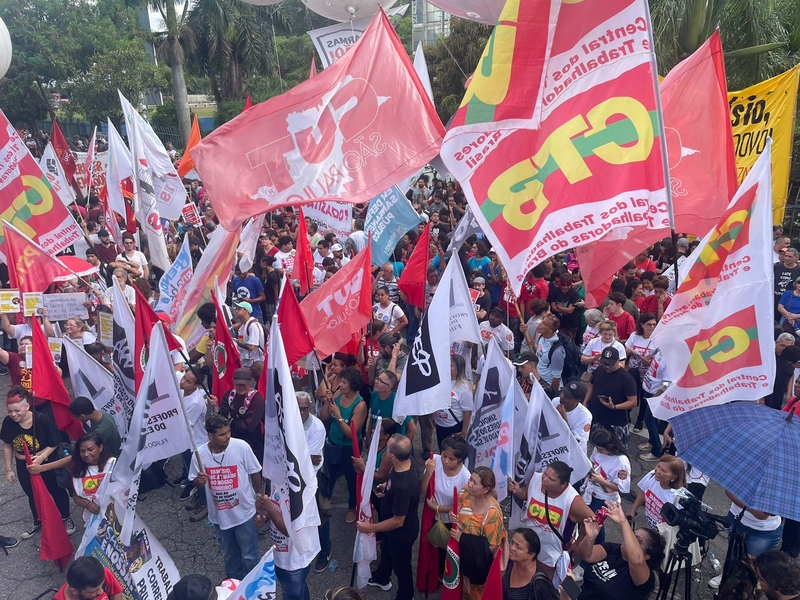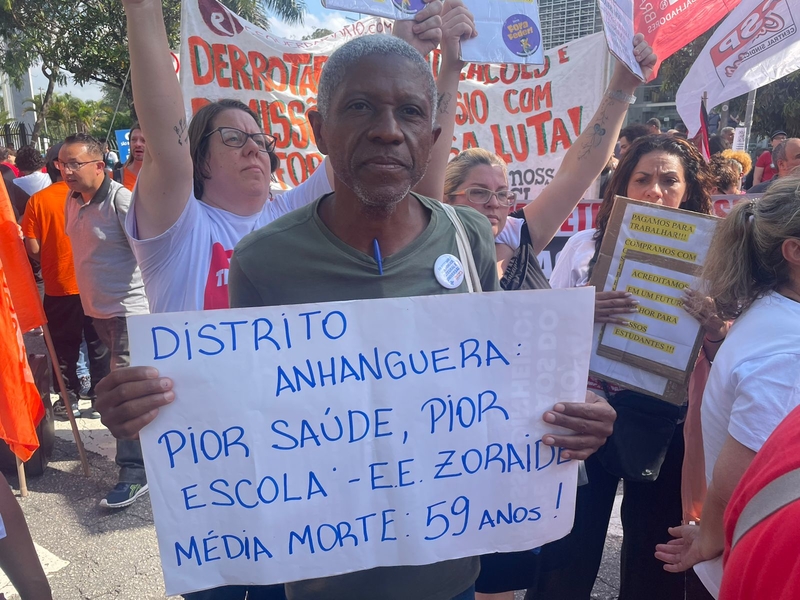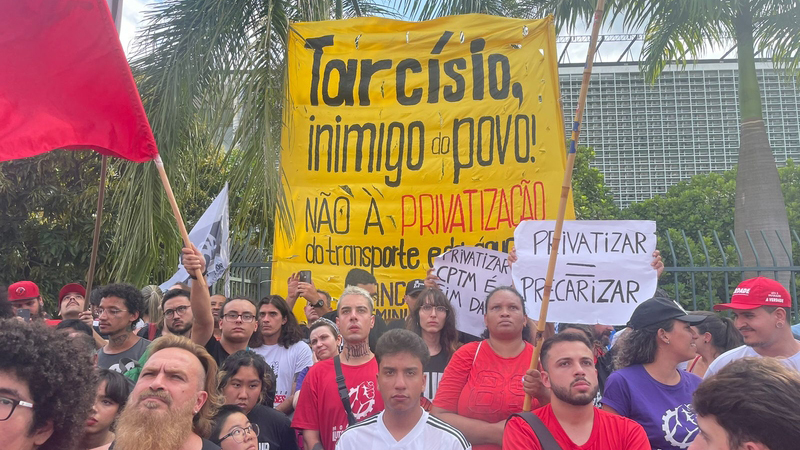On the day that different categories held a historic strike in the metropolitan region of São Paulo, thousands of people took to the streets to protest against the plans to privatize public services by the São Paulo’s right-wing Governor Tarcísio de Freitas.
The demonstration on November 28 at the headquarters of the São Paulo Legislative Assembly (Alesp) brought together representatives of unions, popular movements and many citizens who oppose the Bolsonaro governor’s privatization plans. At the same time, deputies were debating the proposed privatization of the São Paulo State Basic Sanitation Company (Sabesp), which could be the first victim of the plans to hand over public assets.
“We’re going to denounce those deputies who vote in favor of privatization to the detriment of the people of São Paulo. We’re going to keep fighting and denouncing them, because where privatization has taken place, tariffs have increased, like in Rio de Janeiro. If we compare the tariffs in Rio de Janeiro and São Paulo, at Sabesp, it’s an absurd disparity,” said Renê Vicente, a Sabesp worker and director of the São Paulo Water, Sewage and Environment Workers’ Union (Sintaema).
In addition to the employees of the sanitation company, this Tuesday’s strike brought together workers from the São Paulo Metro and Companhia Paulista de Trens Metropolitanos (CPTM), companies also threatened with privatization; as well as public education professionals, amid the threat of billionaire cuts to the sector’s budget.

Clarisvaldo Pereira is a health professional who works in the Anhanguera district, in the north of São Paulo. He went to Alesp to protest against the conditions of the basic school Escola Estadual Professora Zoraide de Campos Helu, which is on the banks of the Anhanguera highway and was the state school in the capital with the worst result in 2017 in the Basic Education Development Index (IDEB), the main indicator of the quality of primary education in the country.
Pereira said that, faced with the school’s precarious conditions, he preferred not to enroll his children in the institution, but he hasn’t given up on seeking improvements for the community where he lives. “I decided to fight. We hope that we will be taken care of, and that this school will go from being the worst school in the state, if not the best, then among the best. We don’t want the worst school anymore. The population doesn’t want it anymore,” he told Brasil de Fato.

The president of the São Paulo Subway Workers’ Union, Camila Lisboa, said that the workers are mobilizing for much bigger reasons than the threat to their jobs, and pointed out that there is much more at stake.
“What motivated the workers to strike was also the defense of their jobs, but not just that. The defense of quality public services is also part of the motivation behind this strike. The privatization processes that have taken place, both in rail transport and in water and sanitation, show that services have worsened and fares have risen,” he said.
The workers of the metro-rail transport system are also demanding the reinstatement of eight employees who were dismissed as a result of the strike on October 3. One of them is Altino de Melo Prazeres Junior, who was president of the union and is still fighting.
“He’s doing this [firing workers] to intimidate the population, to intimidate the workers, because they are resisting privatization. And we’re going to keep fighting. That’s what we’ve done today and what we’re going to continue to do to prevent these important public companies, which have many problems, we recognize that, from being used to enrich a handful of billionaires and then increase the tariff and worsen the services,” she said.
“Today is a day of popular resistance, it also shows how there is popular organization at the grassroots. Subway workers, CPTM workers, teachers, Sabesp employees… The grassroots movement is also willing to fight back,” he concluded.
This article was first published in Portuguese at Brasil de Fato.





